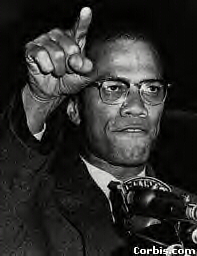March 29, 2006
The Proletarian Cogito
Tim raises a number of interesting questions over at The Wrong Side of Capitalism. The key passage is the following:
‘The materialist critique [of religion] does not assert that religion is false; indeed, it would be almost more accurate to say that the materialist critique shows that religion is true or, better, it shows in what sense religion is true, how religion arises from and so reflects material conditions. So a communist engagement with Islam would not reject Islam, but would involve figuring out how an Islamic vocabulary can articulate communist projects (and if this is not going to just be bad faith, we shouldn’t expect our own communism to come out of the encounter unchanged).’
It strikes me, though, that, even as it acknowledges the hyperstitional effectivity of religion, the Marxian argument presupposes the falsity of religion, but makes the crucial point that merely exposing this falsity can not be sufficient. Idealism stops at merely denouncing religion; materialism must live that denunciation. In the same way, ‘a ruthless demolition of commodity-theology’ must involve behavioural, not merely, cognitive changes.
Capitalism is a set of rituals. I observed in the comments boxes at the Wrong Side that it is a set of rituals that give rise to beliefs, but, on second thoughts, this is misleading. Capitalism does not require us to hold a particular set of cognitive beliefs; it only requires that we act as if certain beliefs (about money, commodities etc) are true. The rituals are the beliefs, beliefs which, at the level of subjective self-description, may well be disavowed. What is needed, then, is a new set of rituals. This leads us back, once again, to the question of what an anti-capitalist economy would look like. ‘Economics are the method, the object is to change the soul’, as someone once said.
Turning now to the question of Communism’s relation to Islam. There is a sense in which what Tim is saying – that ‘a communist engagement with Islam would not reject Islam, but would involve figuring out how an Islamic vocabulary can articulate communist projects’ - must be right. One problem, however, is that from the point of (most) believers, this kind of engagement would already amount to a rejection. I’m not sure that Liberation Theology has ever satisfactorily resolved the tensions between Marxism’s ‘social naturalism’ (the claim that all beliefs have their origins in social practice) and religion’s supernaturalism (the claims that its beliefs are underwritten by divine will).

How might an Islamic vocabulary articulate communist projects, then? Ironically, of course, given the seeming insistence on some quarters of ethnicizing Islam, one of the potentially emancipatory aspects of Islam is precisely its de-racializing and de-ethnicising emphasis. The privileging of the ‘umma’, the Islamic community, over race and nation means that Islam offers what is perhaps the only currently effective alternative 'globalism' to capitalism's multi-nationalization. In reality, of course, Islam is as riven by sectarian disputes as capital remains tied to territoriality. But the universalising impulse in Islam is perhaps something that could potentially be mobilised by communism.
It was this aspect of Islam that Malcolm X celebrated in Islam after his epiphanic visit to Mecca. In his letter from Jedda, April 10, 1964, X called Islam 'the one religion that erases the race problem from its society' (Malcolm X Speaks, p. 59).
What is interesting here is not only that X's later advocacy of universalism differs so radically from his earlier separatism and black nationalism, but also that both positions were articulated via Islam. Malcolm's initial religious conversion was intensely racialized, and race was immediately politicized. The way that Islam was introduced to Malcolm in prison produced a kind of ontological shock, a reframing of all his previous experience. Islam was the mediator which allowed Malcolm to encounter blackness as a political category rather than a natural/social fact, enabling him to re-explain his past history of gambling and petty criminality as an effect of systemic processes. The later turn away from separatism, the shift in his anti-racist thinking from an emphasis on black nationalism towards a de-racializing universalism, followed his break from Elijah Muhhamad, if not from Islam as a whole.
Malcolm X's situation was so tied up with a specific national and historical context that it would be foolish to draw any hasty conclusions from his case. But it does seem to highlight difficulties with the race/religion matrix. One problem, it seems to me, is that the race/religion prism meant that Malcolm's separatist position and his later universalism had to be held sequentially, rather than simultaneously. Marxism, on the other hand, is not only capable of 'squaring this circle', it is based on the idea that a particular group (the proletariat) can stand in for the universal.
Bat came into the college last week to talk to the students about Marx and religion, and one of the most interesting questions, posed by a Christian student, was: what is it about religion that means that it cannot provide the basis for struggle and positive change in the way that class politics can? Bat answered as I would have answered: that religion is too tribalised and sectarian to produce an opposition to multinationalized capital.
Capital's alleged universality, the fact that - theoretically at least - it subjects everyone to an abstract equivalence, generates an antagonist which can proclaim real universality and genuine equality. Ironically, it is now, when the idea of a proletariat is abandoned - in favour of the 'multitude' or the 'people' - that the concept starts to have an unprecedented purchase on social reality. In the generalized insecurity of post-Fordist precarity, the tendency is for all labour - including that of the capitalist - to become proletarianized. This isn't to deny or in any way downplay the systematic plunder by the managerial uberclass (anyone in any doubt about that need only take a look at the graphs in Harvey's A Brief History of Neoliberalism, which show the vertiginous increase in the pay of CEOS over the last thirty years). But few people, no matter how cloistered they are in wealth, can fully exempt them from a bipolar social reality defined by unpredictable, sudden and violent change, and ruled not by the whim of individuals but by the idiot diktats of Capital.
The disaster of Cultural Studies lay in its ethnicizing of the 'working class', in its paeans to the 'dignity' of working class life, its celebrations of the microresistances supposedly demonstrated by 'subversively' watching soap operas and such like. What Cultural Studies did, in other words, was to assimilate Marxism into identity politics. That move totally undermined the basis of Marxism, which would be better described as a disidentity politics. This is not to suggest that Marxism entails the empirical destruction of identities and ethnicities. It is to say that for Marxism, collectivity is organized on the basis of an indifference to difference.

Perhaps, with Badiou and Sartre as well as Marx in mind, it is worth positing a distinction between subjectivity and identity here. Identitarianism assumes that people are condemned to identify with the positive (ethnic/ gender/ nationalistic) predicates they possess, as if their subjectivity were exhausted by those properties. Exactly the opposite is the case: the authentic dimension of subjectivity consists not in any positive identity but in that which makes identifications. Seemingly bizarrely, this is why the (Lacanian) cogito - from which, not only all biosocial facticity but any phenomenological qualia (the texture or depth of experience) have been evacuated - can serve as the basis for collective politics.
This is why the claim that the proletariat are replicants goes beyond being metaphor. The question Zizek poses in respect of the replicants in Blade Runner - 'where is the cogito, the place of my self-consciousness, when everything I actually am is an artifact - not only my body, my eyes, but even my most intimate memories and fantasies?' - can also be posed of the subjects of late capitalism. What the winds of capital have scoured away, essentially, is the ability to believe that the positive content of our identities is more than a (cultural or neurological) implant. (And isn't the real libidinal impulse behind the Cult Studs Difference Industry a desperate attempt to shore up the belief that there are those elsewhere who can still believe?) The Proletarian Cogito begins - at the point where historical materialism meets eliminative materialism? - with the affirmation of this nontheistic destitution, the renunciation of nostalgic simulations.
Posted by mark at March 29, 2006 11:37 PM | TrackBack